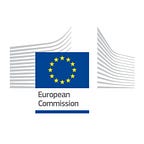#SaferTogether against COVID-19: offering protection for migrants and refugees in Ecuador
The coronavirus pandemic is a global crisis, but it has been particularly devastating among refugees. In Ecuador, there are an estimated 415,000 Venezuelan migrants and refugees, along with 68,500 refugees from Colombia. When the coronavirus reached Ecuador, emergency shelters were forced to cut back on staff and services. Border closings stranded people, including children with no parents to look after them. The EU is working with its partners in the country to ensure the thousands of refugees in the country remain safe in these perilous times.
Young people on the edge
Valeria is a 17-year-old from Colombia. She travelled to Ecuador a year ago to join her mother. But when she arrived, she found her mother in jail. She has a younger brother and two sisters. Her younger brother and sister, along with her aunt, are homeless back in Colombia, while her older sister disappeared sometime in the past. Her father has worked in illegal arms, and Valeria spends every day in fear.
Learning about her situation, staff at Casa Isabel, an emergency shelter for migrant children in Quito, offered Valeria a place to stay. Casa Isabel is part of a network of Ecuadorean shelters that EU funding has helped keep open during the pandemic. This funding enables Casa Isabel to provide children with access to healthcare, legal and psychological support, and even money to pay rent for those who do not stay there.
Keeping families safe
In 2020, the EU allocated €67.7 million to provide essential support for people fleeing the recent political and economic turmoil in Venezuela. This money funds key services and shelters across the region that serve at-risk people like Valeria, helping them with clothing, food, education, basic healthcare and temporary shelter.
When the COVID-19 pandemic arrived in Ecuador, the EU redirected €1.6 million to the UNHCR, a key partner organisation directly fighting the impact of the virus in the country. This helped shelters like Casa Isabel create awareness programs and teach prevention techniques, while also putting in place sanitary and hygiene measures to protect residents and staff.
Normally, Casa Isabel only allows individuals to stay for a few months. However, during the pandemic, EU assistance has allowed them to open their doors to whole families even up to a year. Kleidy Vasquez, a 17-year-old from Venezuela, moved to the shelter with her 2-month-year old baby after social workers rescued them from the child’s abusive father. Thanks to EU funding, Kleidy will be able to stay at the shelter with her baby until she finds a safe place to go.
An urgent intervention
Despite border closures, there is a near constant flow of migrants and refugees into Ecuador, many from Venezuela. The International Organisation for Migration (IOM) estimates that at least 800 Venezuelans flee their country every day (although the real figure is likely much higher). Ecuador is ill-equipped to take care of them. Due to the pandemic, its health care system is close to collapse with the situation leading to staff reductions at the very organisations supporting those most in need. EU humanitarian aid provides crucial support for refugees and migrants in Ecuador at a time when they need it more than ever.
